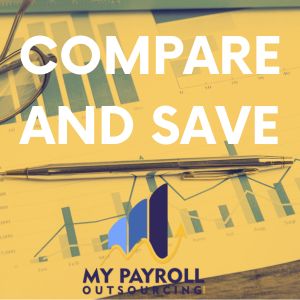
Payroll Service For Non-Profits | Compare, Research, Save
Buyers Guide for Payroll Outsourcing for Non-profits
Outsourcing payroll is a strategic move for non-profit organizations looking to streamline their operations, reduce overheads, and focus more on their core mission. Here is a comprehensive guide to assist non-profit organizations in making informed decisions about payroll outsourcing.
Advantages of Payroll Outsourcing
- Cost Efficiency: Outsourcing payroll can be more cost-effective than hiring full-time staff to manage it. You reduce expenses such as salaries, benefits, training, and software costs.
- Time Savings: Payroll processing can be time-consuming, especially for non-profit organizations that may not have dedicated staff. By outsourcing, you free up time to focus on your organization’s mission.
- Compliance: Payroll companies are experts in tax laws and employment regulations. They can help ensure your organization stays compliant, reducing the risk of penalties.
- Accuracy: Payroll mistakes can be costly and frustrating. Payroll companies use sophisticated software and have expert staff, reducing the chance of errors.
- Security: Payroll companies have stringent security measures in place to protect sensitive data.

Features to Look For
When evaluating payroll outsourcing providers, here are some key features to consider:
- Experience with Non-profits: Non-profit payroll can have unique requirements such as tracking grant funds and managing volunteer stipends. Look for a provider with experience working with non-profits.
- Full-service Payroll Processing: The provider should handle all aspects of payroll, including calculations, deductions, pay slip generation, direct deposits, and year-end reporting.
- Tax Services: The provider should file and pay all payroll taxes on your behalf, ensuring compliance with federal, state, and local tax laws.
- Reporting Capabilities: Good payroll services will provide robust reporting tools to help you manage your workforce and budget.
- Integration: The payroll service should be able to integrate with your existing systems, such as time tracking, human resources, and accounting software.
- Customer Service: A dedicated account manager and responsive customer service are essential.
- Cost: Look for transparent pricing with no hidden fees.
Additional Considerations
In addition to the features above, consider the following:
- Scalability: As your organization grows, your payroll needs may change. Look for a provider that can scale with you.
- Training and Support: A good provider will offer training and support to ensure you understand how to use their system.
- Contract Terms: Review the contract terms carefully. Look for any potential hidden fees or long-term commitments.
- References and Reviews: Ask for references from other non-profits, and check online reviews to get a sense of the provider’s reputation.
Outsourcing payroll can provide many benefits for non-profit organizations. However, the provider you choose can significantly impact your experience. By considering the points outlined in this guide, you can find a provider that meets your needs and helps your organization succeed.

Steps to Select the Right Payroll Outsourcing Partner
Once you understand the features and considerations to look for in a payroll outsourcing partner, the next step is to embark on the selection process. Here are some steps to follow:
- Assess Your Needs: Before starting your search, identify what you need from a payroll provider. Consider the size of your organization, the complexity of your payroll, and any unique requirements you have.
- Research Potential Providers: Use online research, peer recommendations, and resources like MyPayrollOutsourcing.com to create a shortlist of potential providers. Look at their experience, reputation, and the services they offer.
- Request Quotes: Contact the providers on your shortlist and request a detailed quote. Ensure that the quote includes all the services you need and doesn’t contain hidden costs.
- Evaluate Proposals: Compare the quotes and services offered by each provider. Consider factors like cost, services included, experience, customer service, and contract terms.
- Check References: Ask each provider for references from non-profit organizations of a similar size to yours. Contact these references to ask about their experience with the provider.
- Make a Decision: Based on your research, choose the provider that best fits your needs and budget.
- Transition Process: Work with the chosen provider to transition your payroll. This process may include setting up your account, transferring data, and training your staff.
Ongoing Management and Review
Once you’ve selected a payroll outsourcing partner, it’s essential to review their performance regularly. Here are some things to consider:
- Customer Service: Is the provider responsive to your needs? Do they resolve issues quickly and effectively?
- Accuracy: Is the provider processing your payroll accurately and on time?
- Compliance: Has the provider kept you compliant with all relevant tax laws and employment regulations?
- Reporting: Are you receiving detailed, useful reports?
- Cost: Is the service providing good value for the cost?
By regularly reviewing these areas, you can ensure that your payroll outsourcing partner continues to meet your needs and provides good value for your organization.
Choosing a payroll outsourcing partner is a significant decision for any non-profit organization. By following the steps and considerations outlined in this guide, you can select a provider that not only takes the burden of payroll off your shoulders but also adds value to your organization, freeing you to focus more on your mission.